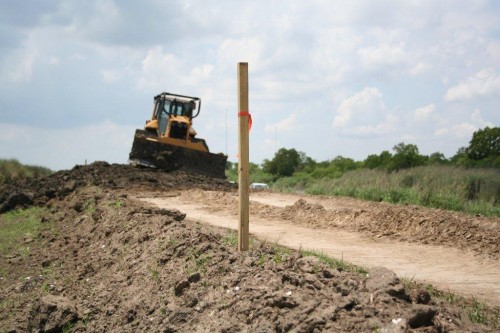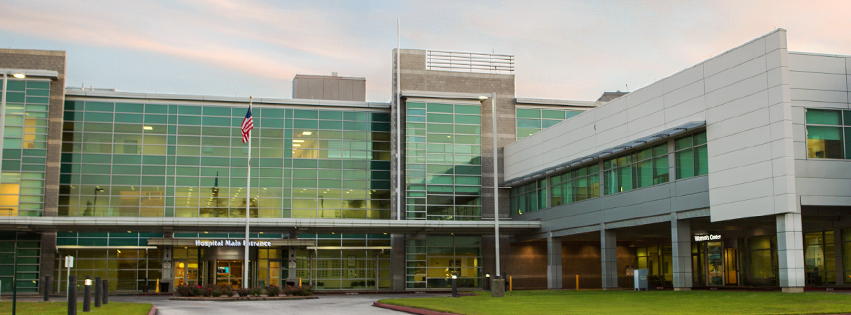
CDBG funds Terrebonne levee, pump station projects
May 16, 2012
Weather, economy will impact Morganza vote
May 16, 2012December marks 12 years since the Morganza-to-the-Gulf hurricane protection system first received congressional authorization. Seven years later, it was authorized for a second time.
Both endorsements have since evaporated, and stakeholders are eyeing the next Water Resource Development Act bill, whenever that may be, as the vehicle for a third authorization.
Also known as a WRDA, the legislation designates water, navigation and environmental projects and studies on which the U.S. Army Corps of Engineers can proceed. The bills typically do not appropriate funding, but authorization does give a project funding eligibility.
Congress last authorized a WRDA bill in 2007. The body had to override President George Bush’s veto to do so. The Morganza-to-the-Gulf project, then estimated at $888 million, was included in the bill.
However, weeks after the 2007 bill passed, the corps’ cost estimate more than doubled due to heightened post-Hurricane Katrina standards for building flood-protection systems, effectively un-authorizing the project.
“There’s sort of a legal debate whether we have it authorized or not,” said Reggie Dupre, director of the Terrebonne Levee and Conservation District. “I’m not sure how to answer that in federal terms.”
The corps began to re-evaluate the project and is scheduled to file its Post-Authorization Change report by December, five years after the estimated cost increase. The report is a necessary addendum to Morganza authorization through WRDA.
Dupre, who has seen an advance copy of the report, said the total federal cost is about $7 billion. The corps’ post-Katrina standards are the driving force behind the dramatic hike, he said.
U.S. Sen. Mary Landrieu said an abundance of authorized, but not funded projects from previous WRDA bills could be daunting for the national delegation as it pertains to future WRDA authorizations.
“The problem is that WRDA currently, today, has $60 billion in backlog and no money to fund the projects that are authorized today,” Landrieu said.
The backlog decreases Morganza’s chances of expedited funding even if the project were authorized today.
The senator said it’s possible that the new Congress – after 435 U.S. House and 33 Senate seats are won via election this year – would pass a WRDA bill. She also said it would be “very, very, very difficult.”
“That’s why Louisiana has gone our own way in trying to find our direct funding so that we have a reliable, permanent and dedicated source of money to fund our projects, because if we stay with the old way, which is sort of the WRDA way, these projects will likely never happen,” Landrieu said.
Before discussion on WRDA can even begin, federal lawmakers must first complete work on a highway bill, a contentious debate fueled by partisanship that is currently in conference committee.
U.S. Sen. David Vitter is the top-ranking Republican member of the Subcommittee on Transportation and Infrastructure, which crafts the highway and WRDA bills.
Vitter, who said he has a promise from the corps that its PAC report will be signed by December, said he is “very hopeful” that a WRDA bill would pass next year, thus aligning the necessities for Morganza to again receive authorization.
“I got the corps to commit and promise, and I update this all the time, that they will finish this next reanalysis and chief’s report for the end of this calendar year,” Vitter said. “That will be teed-up so we can re-reauthorize Morganza to the Gulf in the next WRDA and then start moving forward immediately with portions of independent utility.”
The reanalysis “will clearly justify a re-authorization,” Vitter said.
State and local entities have dedicated $226 million toward smaller projects that fit into the Morganza system, according to the Terrebonne Levee and Conservation District. Some projects are awaiting the arrival of funding while others are awaiting permits.
Aside from immediate, albeit less-expansive, protection, ongoing projects will count toward the local share when federal appropriations are handed down.
Once the project is authorized and funded, work orders will be prioritized on value independent of the greater system.
U.S. Rep. Jeff Landry of New Iberia sits on the U.S. House Transportation and Infrastructure Committee, which is tasked with crafting the House’s version of the WRDA bill.
Landry said work on WRDA would begin after the federal highway bill is approved. “However, with the problems Washington has caused on the highway bill, the prospects for a WRDA this year do not look promising,” he said via email.
Landry, a first-term congressman affiliated with the Tea Party Caucus, said the next WRDA bill would likely focus on reforming the corps’ procedures instead of authorizing projects.
“This policy-based approach can certainly help the Morganza-to-the-Gulf project by changing the way the Corps works: stopping duplicative studies, ending the peer reviews, and establishing mitigation rules that make sense,” Landry said. “After all, the Corps’ current system of studying projects to death has turned this $800 million project into an approximately $8 billion project.”
Before 2007, WRDA was enacted in 2000, 1999, 1996, every other year from 1986 to 1992, and in 1974 and 1976.
Morganza first received federal authorization in 2000, but it was contingent on the corps filing a feasibility report by Dec. 31, 2000. The corps filed its report more than a year after the deadline, so despite the corps’ favorable judgment Morganza lost authorization.












